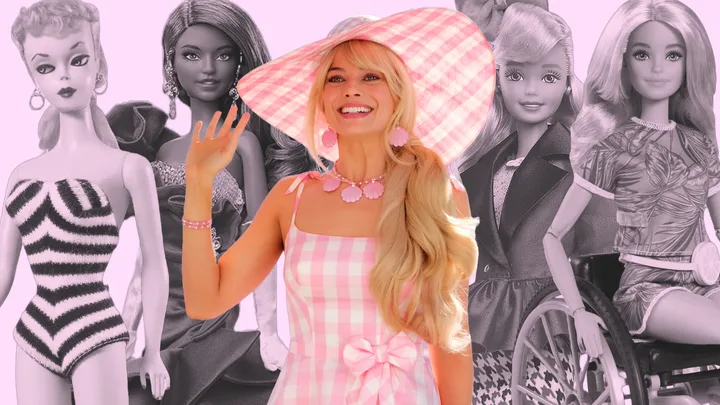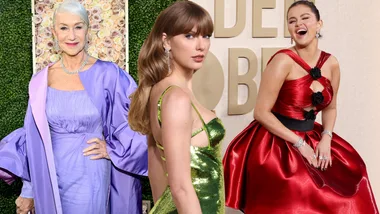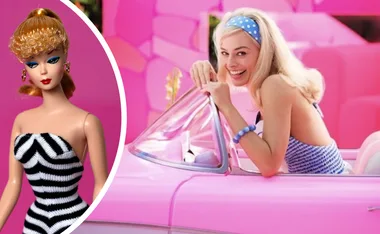“Oppenheimer is based on a 721 page Pulitzer Prize winning book about the Manhattan Project and Barbie is based on a plastic doll with big boobs.”
It took first-time Golden Globes host Jo Koy just mere seconds into his opening monologue to irreparably mar the sheer impact of Barbie – both the doll and the eponymous film.
As those words rang out, you could almost feel the entire room recoil. The cameras then quickly cut to a less-than-impressed Greta Gerwig. Whilst the packed audience had been politely clapping along to Jo’s painful jokes in the opening monologue, there was an immediate and uncomfortable silence which followed his utterly bizarre Barbie dig.
I can already hear people defending this misguided statement; arguing the comedian had just two weeks to prepare for the gig. But as Jo himself proudly stated on the red carpet, these jokes had been written and approved in collaboration with an extensive team.
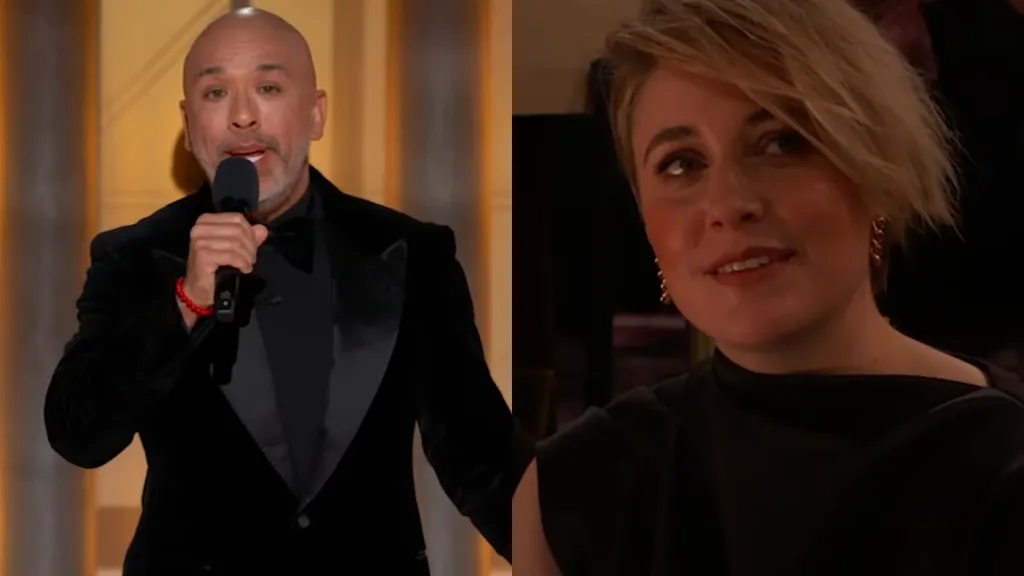
He also admitted that many of the jokes in his speech had been written, scrapped and rewritten several times. With so many purported eyes over Jo’s jokes, it’s truly mind-blowing how such a base and reductionist comment made it to live television.
In the Barbie film when Ken is in the real world, he tells an executive that he believes that their world is not executing patriarchy very well, to which the man replies, “We are doing it well, we just hide it better.”
For Barbie’s first-ever mention to kick off award season to be an utterly misogynistic and harmful remark tells me that whilst Jo Koy insists he did watch Barbie – he did not get it.
And not only does Jo Koy fundamentally not understand Barbie’s premise, his comment proves time and time again that whilst women look at Barbie as a nostalgic hallmark of their girlhood, some men will only ever sexualise what is a children’s toy.
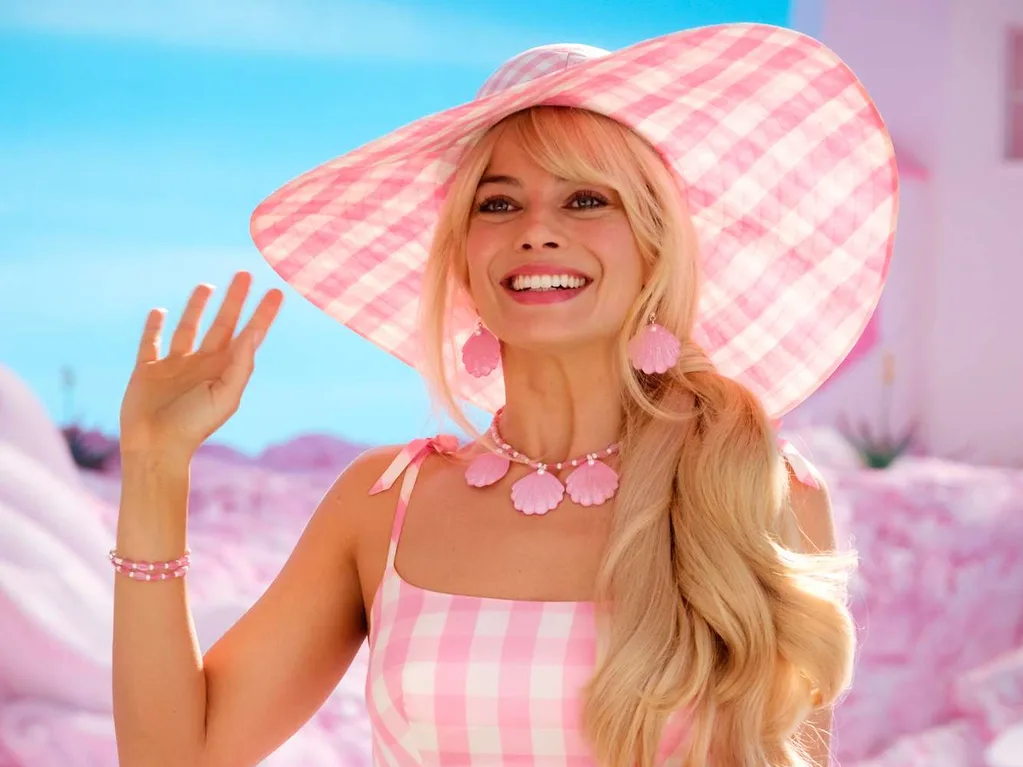
Towards the end of the film, Gloria (portrayed by America Farrera) embarks on an epic monologue, encapsulating the paradoxical struggle of being a woman.
“It is literally impossible to be a woman,” she begins. “Like, we have to always be extraordinary, but somehow we’re always doing it wrong.”
“I’m just so tired of watching myself and every single other woman tie herself into knots so that people will like us. And if all of that is also true for a doll just representing women, then I don’t even know.”
In the decades since her creation, Barbie has fallen in and out of society’s good graces. We embraced Barbie as a bastion of girlhood before casting her away as something that reflects the evilness of internalised misogyny and the unfair expectations on women.
The Barbie team highlighted this dichotomy within the film when Sasha (Gloria’s daughter) identifies that Barbie represents everything wrong with our culture from sexualised capitalism to unrealistic physical ideals before labelling the iconic doll as a “fascist”.
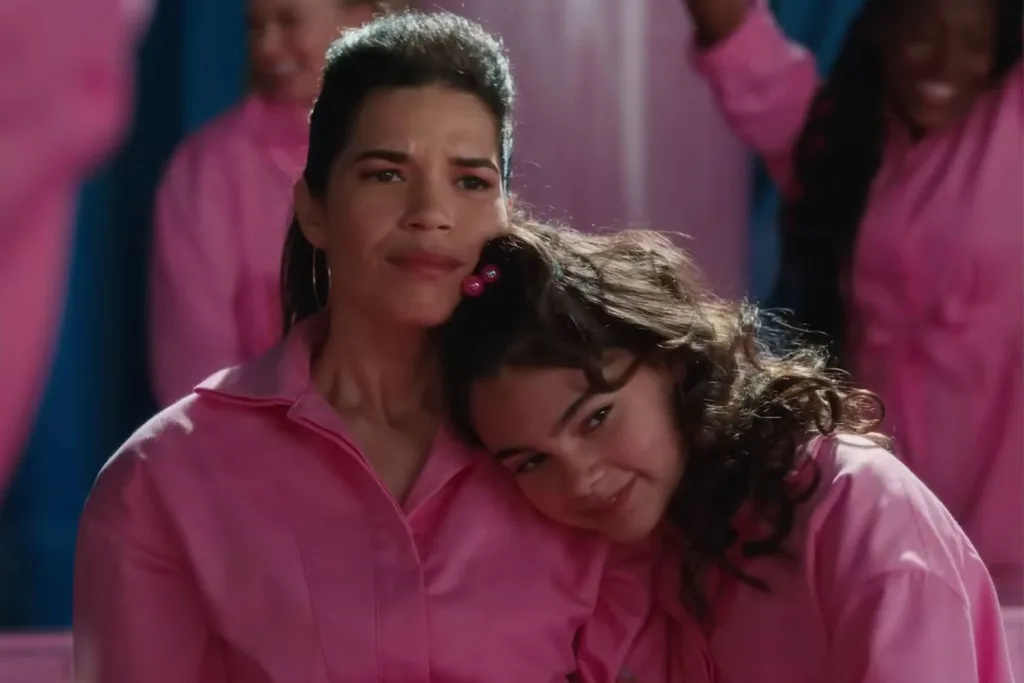
Whilst these assertions may ring true for some, it’s undeniable that Barbie as a cultural phenomenon is also incredibly multifaceted.
The beginning of the film aptly points out that prior to the invention of Barbie, dolls were typically babies – which in itself, reinforces its own misogynistic set of stereotypes that all little girls should only grow up to be mothers.
Barbie was not only an adult, but unmarried, childless and had total financial freedom including her own credit cards, her own house and her own car – which preceded a woman’s actual right to do most of these things that we take for granted these days.
But in that moment of the Golden Globes host’s opening monologue, a doll that represents aspiration, freedom, ambition and acceptance, was reduced to nothing more than a sexual being – which is the only thing Barbie is not.
“She’s a doll. She’s a plastic doll. She doesn’t have organs. If she doesn’t have organs, she doesn’t have reproductive organs. If she doesn’t have reproductive organs, would she even feel sexual desire? No, I don’t think she could,” Margot Robbie, who portrays Barbie in the film, told Vogue in a cover story last year.
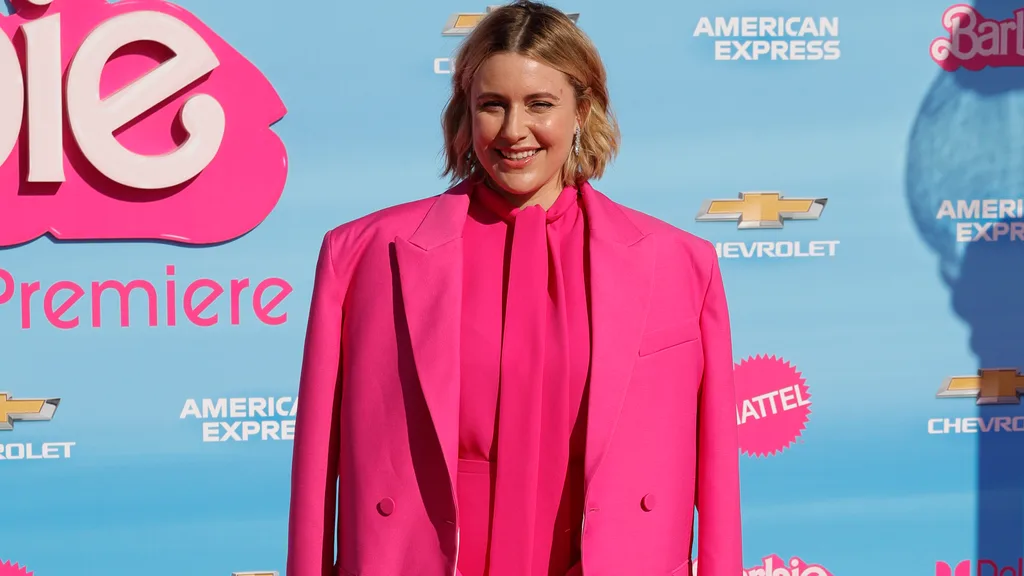
She continued, “She is sexualised. But she should never be sexy. People can project sex onto her. Yes, she can wear a short skirt, but because it’s fun and pink. Not because she wanted you to see her butt.”
Beyond the sexualisation of Barbie, Jo’s comment was a belligerently misogynistic attempt to undermine Greta Gerwig’s directorial work in comparison to Christopher Nolan’s Oppenheimer – despite the film not selling nearly as many tickets as Barbie.
Jo’s decision to pit Barbie and Oppenheimer against one another can only be described as baffling seeing as not only were the cast and crew of both movies incredibly supportive of ‘Barbenheimer’ in interviews, but fans were too.
Tens of thousands of people took delight in bingeing Christopher’s epic three-hour cinematic masterpiece only to head straight into Greta’s delightfully pink world of Barbie; leaving the cinema wiping their tears away and searching up Barbies on Facebook Marketplace for a boost of nostalgia.
When executives sit in boardrooms discussing why award show ratings are at an all-time low, particularly amongst Gen Z, Jo Koy opened his mouth to prove why.
